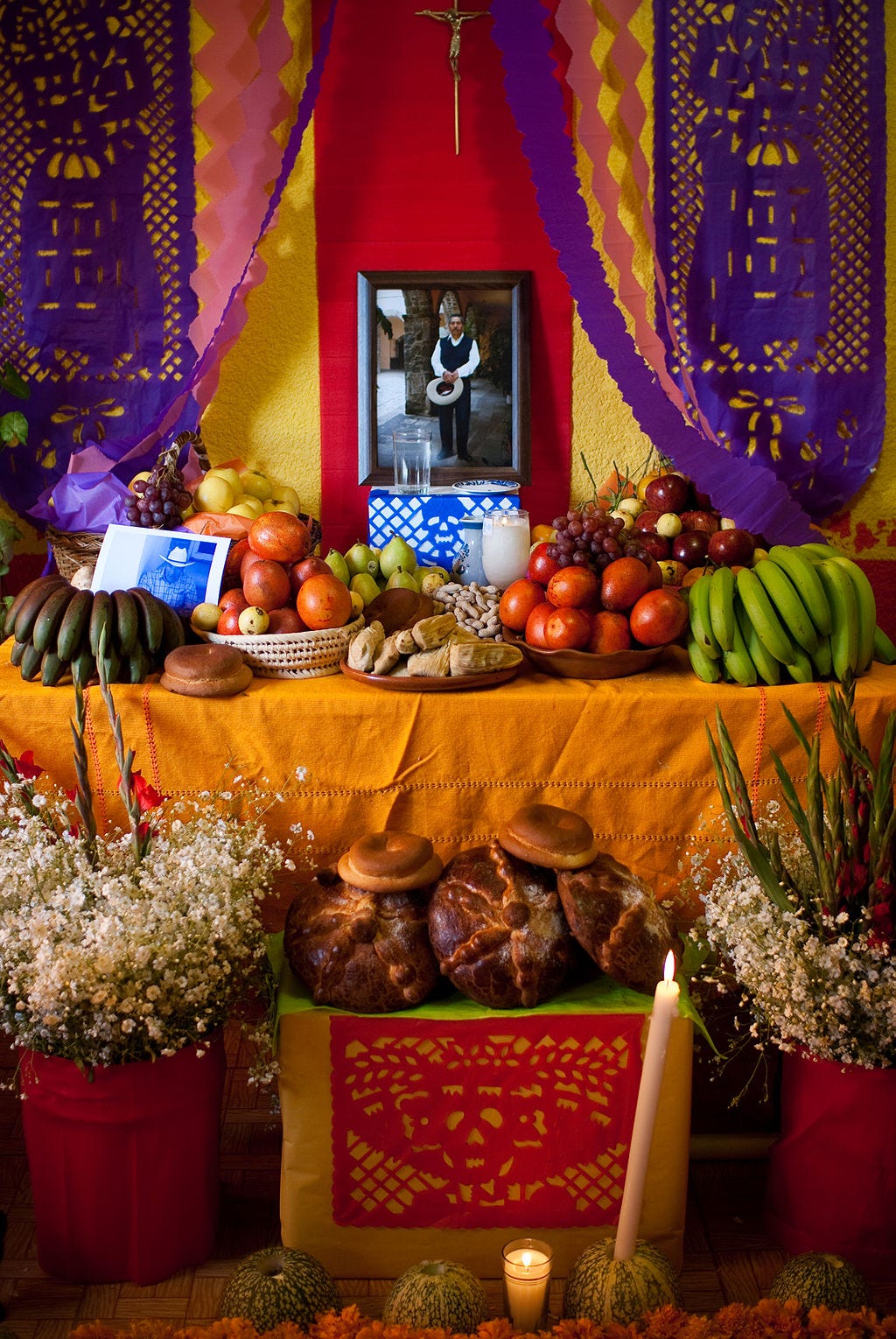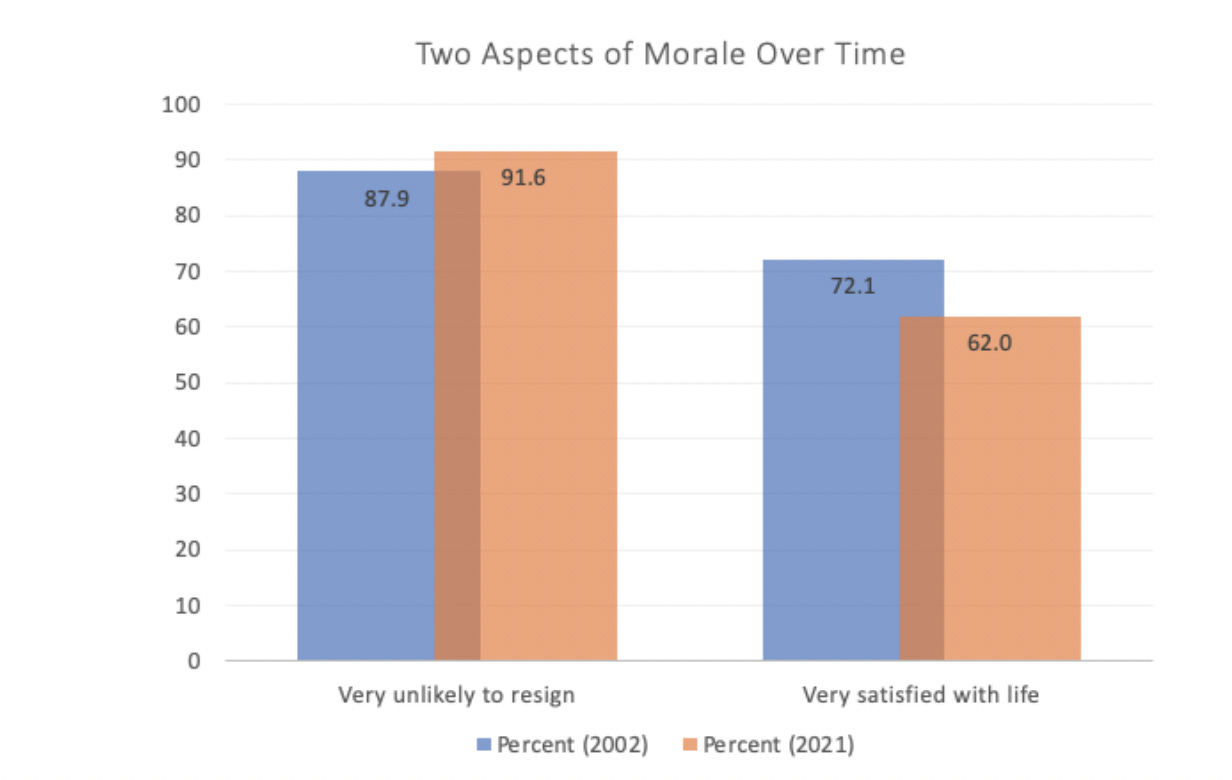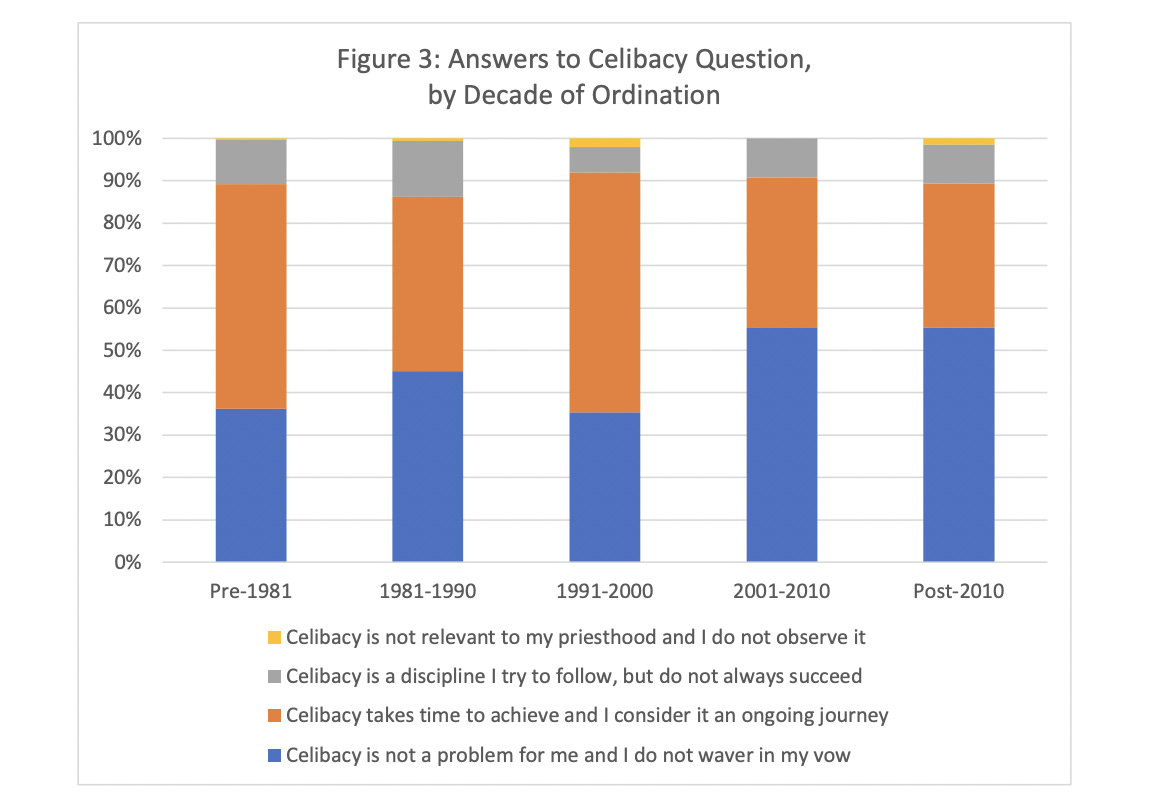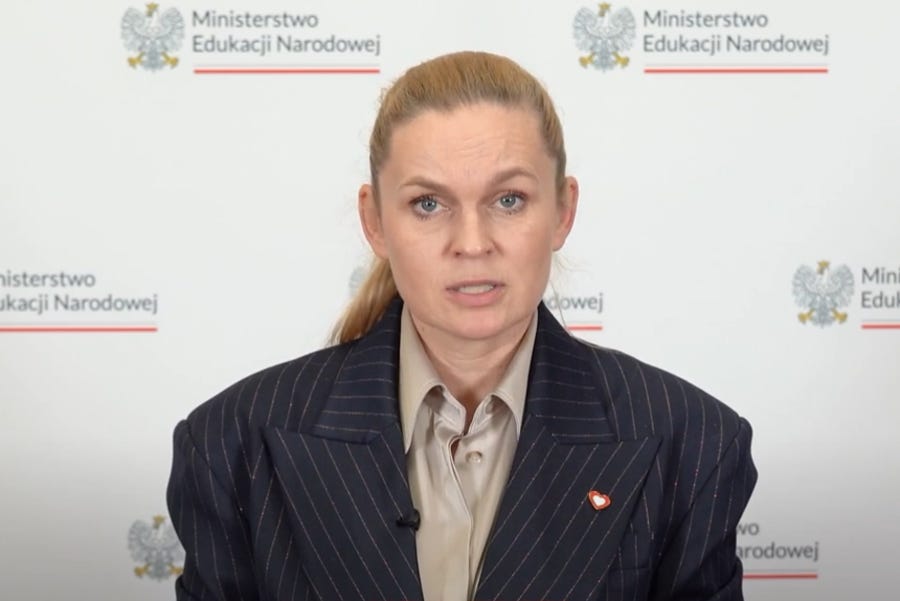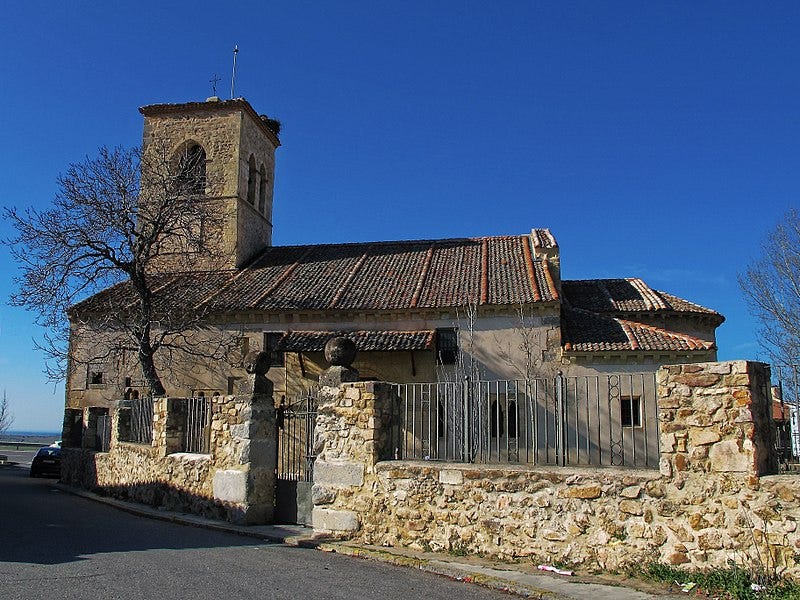Hey everybody,
This is All Souls’ Day, and you’re reading The Tuesday Pillar Post.
The news
Eucharistic coherence
Media outlets have spent months speculating about what the USCCB will say and not say in its catechetical statement on the Eucharist, up for a vote later this month.
The statement has been controversial since it first came up for discussion: In May the Congregation for the Doctrine of the Faith gave the USCCB instructions on how to proceed on a debate over the document, and in the same month, ahead of the USCCB’s virtual meeting in June, a group of bishops wrote to the conference’s president urging that it be taken off the meeting’s agenda. Eventually, the bishops voted for the document to be drafted, but not before hours of debate on the subject.
After all the attention the statement has gotten, a lot of Catholics are wondering what the text will actually say. This morning, The Pillar reports on a draft text circulating among bishops, which several sources passed to The Pillar. And you don’t have to take our word for it, you can also take a look at that text yourself.
Want to know more? Read all about it.
And, by the way, if you’ve followed the development of this text, you know that The Pillar has been ahead of the reporting every step of the way — from our initial March report that a document would be in the works, to covering the back-and forth among bishops, The Pillar has broken most of the news on this story. That kind of work takes subscribers who believe in it. So if you want more of what we do, become a paying subscriber today:
—
Passing on the faith
Sociologist Amy Adamczyk is co-author of “Handing Down the Faith: How Parents Pass Their Religion on to the Next Generation,” a study with sociologist Christian Smith on, well, how parents pass their religion on to the next generation.
We talked with Adamcyzk about her findings.
Here’s just one: “Parents who are committed to their religion tend to have more success, so parents who are not as committed, tend to raise children with lower levels of religious belief and greater interest in disaffiliation.”
—
All souls’ stipends
Of course, you know that Catholics pray for the souls of the dead on All Souls’ Day, and you probably know that many Catholics have Masses said for the repose of their loved ones.
But you might not know the fascinating history of the priestly stipends for those Masses, or the now-suppressed All Souls’ Day custom informally called “Black Christmas.” But if you’re interested in the nuances of canon law, liturgical finances, and the Vatican’s involvement in your own parish’s life — well, check it out.
—
Jimmy Lai back in court
Incarcerated Hong Kong Catholic businessman and media owner Jimmy Lai appeared in court Monday, to plead not guilty on charges of unlawful assembly, after the government charged that Lai encouraged Hong Kongers to participate in a banned Tiananmen Square Massacre memorial vigil held last year.
Read about Lai, and the situation for Catholics in Hong Kong, right here.
Biden and the pontiff
On Friday, as you probably know, President Joe Biden told reporters that Pope Francis had told him he was a “good Catholic” who should continue receiving Communion — an account that made headlines around the world, given the criticism Biden has received from U.S. bishops over his support for legal protection for abortion.
There have been a lot of headlines and takes on Biden’s account — but at The Pillar, we wanted to bring you the unvarnished words of the people involved. So who said what? We bring you the straight facts — and as the story has developed, we’ve kept our rundown updated. So if you want to to see for yourself what’s happened, read all about it here.
—
On Saturday, Ed asked some important question: Did the pope say what Biden said he said? If not, what might account for the president’s account? Ed unpacks the president’s papal precis, right here:
…reading the pope’s own words on how the situation of pro-abortion Catholic politicians and Communion should be handled, there’s another, perhaps more consistent possibility.
There’s every reason to believe that the pope would have told the president to do exactly what he has been advised to do by his pastor back home. That is exactly how and by whom the pope has always said such matters should be handled.
—
On Monday, I gave some thought to what Biden’s account, and the Holy See’s decision not to comment, might mean to practicing Catholics in the U.S. What Biden’s account hath wrought —
Biden supporters are certain to continue celebrating the president’s account of his meeting with Pope Francis — for them, it was a moment of renewal and hope, and a rebuke to Biden’s critics in both the episcopate and the commentariat. And on the opposite end of the spectrum, there are indeed some Catholic voices who will treat Biden’s account as a verified verbatim transcript, in order to advance their predictable pre-written narratives against the pope.
But there are a lot of practicing Catholics who fit neither of those camps. And some of them, even while trying to give the pope the benefit of the doubt, are frustrated.
It is not that the frustrated Catholics are confused by the alleged approbatio of Pope Francis, it’s that they disagree with it: For many American Catholics, it is dispiriting that a person actively engaged in efforts to legally protect and federally fund abortion could present himself for Holy Communion, much less boast about a papal greenlight for doing so.
News notes
Rhode Island police arrested Fr. James Jackson, FSSP, on Saturday, on charges of possessing and transferring of child pornography. Fr. Jackson’s arrest is a story of national interest because the priest has been well-known, and widely popular, in traditionalist circles and communities, many of which have been hit hard by the news of his arrest. On Monday night, police arrested a man who showed up waving a gun and threatening parishioners at the Providence parish where Jackson was serving as pastor, in an incident police say is related to Jackson’s arrest.
The Diocese of Providence said it will work with police and prosecutors in the case.
—
By the accounts of medical experts, the state of Oklahoma botched an execution last month, seeing John Marion Grant convulse, reportedly for 15 minutes, and vomit as he was administered a drug meant to sedate him — which medical experts say indicates that the drug was used incorrectly. Grant’s execution came after the state paused executions for six years while its execution methods were called into question.
But the state is scheduled to execute another inmate, Julius Jones, later this month, while Oklahoma’s parole board has recommended clemency.
Oklahoma City’s Archbishop Paul Coakley, who has been outspoken in recent years against the death penalty, weighed in yesterday, urging clemency as well:
“Clemency is an appropriate recommendation in this case. No matter the guilt or innocence of Julius Jones, there is doubt. The death penalty is final and leaves no opportunity to seek the truth. Please pray for the children, family and friends of Paul Howell who have endured years of appeals and hearings while grieving tremendous loss. As Jesus teaches in the Sermon on the Mount, ‘Blessed are the merciful for they will receive mercy.’”
—
Survey says…
In 2002, the Los Angeles Times surveyed priests about the life of the Church and her viewpoints, their satisfaction in priesthood, their private lives, and their takes on the sexual abuse scandal which burst into public awareness that year. The Times survey was praised as one of the most comprehensive looks at priestly life in America, and was an ongoing source of data for sociologists and researchers.
Three researchers announced this week the conclusion of a similar study, the 2021 Survey of American Catholic Priests, which aimed to provide an updated look at priestly life and ministry in the United States. The researchers compiled answers from 1,036 priests across the country who responded to questions about their own lives, their happiness, their beliefs, and their ministry.
You can read their papers here. and here Because they’ve made their dataset publicly available, we’ll dive into it in the next few weeks — but in the meantime, here are interesting notes from the researchers’ paper:
(These graphs and tables are taken from their papers.)
Priests in the 2021 survey are less likely to think they might resign from ministry in the next few years: 91.6% said they are very unlikely to resign, as compared to 87.9% in 2002. But only 62% of priests in 2021 said they are very satisfied with their lives, as compared to 72.1% in 2002.
—
Priests in both 2002 and 2021 were asked to evaluate their relationship with their bishop. In both surveys priests tended to broadly support their bishops’ moral views. In 2002, 70.8% of priests said they were “very comfortable” or “fairly comfortable” approaching the bishop for counsel and guidance, while in 2021, a lower percentage, 62.5% said they would be comfortable doing so.
A slightly higher percentage of priests in 2021 said they approve “somewhat” or “strongly” of how their diocesan bishop is leading his diocese, but the increase is marginal: 78.9% of priests in 2021 offered approval of the bishop’s leadership, compared to 78.4% in 2002.
—
Priest in both 2002 and 2021 were asked the extent to which they agree or disagree with the statement: “The sole path to salvation is through faith in Jesus Christ.”
On the whole, 58% of priests said they agreed strongly in 2021, and 25.5% said they agreed somewhat. In 2002, 48.3% said they agreed strongly — 10 points fewer than in 2021 — and 25% said they agreed somewhat.
Roughly three-quarters of priests ordained after 2000 told researchers they strongly agreed with the statement — a higher percentage gave that answer, by more than 20 points, than any cohort asked in 2002. Interestingly, between the two surveys there is an increase of the percentage affirming that statement among priests ordained between 1980 and 1999.
—
In the 2002 survey, priests were asked about their commitment to celibacy, and the 2021 survey replicated the 2002 question verbatim. I am not sure entirely what to make of this question, and here’s why: In popular parlance, celibacy is understood to mean “not having sex.” In Church language, celibacy is technically understood to mean “not being married,” and continence is understood to mean “not having sex.”
I suspect if you surveyed priests, as these researchers did, some would think of celibacy in the ordinary vernacular usage, and some would think of it in the technical Church sense. That might impact answers, I’m not sure. In either case, the graph below shows that priests ordained after 2000 are more likely to say they do not waver in their commitment to celibacy than those ordained before then.
It is not immediately clear to me what those in the group who say celibacy is a lifelong journey actually mean by that — and indeed the 2021 researchers indicate that they would have designed a new question if they were not trying for consistency with the 2002 questions.
As I said, we’ll be diving more deeply into the data available in both papers. In the meantime, check them out.
Quick notes
Among the traditions of All Souls’ Day is the ofrenda, a devotional home altar meant to remember departed souls, and a reminder to pray for their repose.
In a video from Iowa PBS, Cecilia Villa explains some aspects of the ofrenda tradition:
—
For the memorial of All Souls, consider this read, on caring for a cemetery, and finding hope there:
The secret I learned from these grace-filled witnesses is that while there is no escaping death, they have found ways to die before they are dead: to themselves in sacrifice for others, to the world in their refusal to chase gains that they cannot store up for the next life. Most of all, they hope. They live the death they are baptized into in Christ, and in hope they are saved from despair in their suffering; the end of their own or their loved one’s life on earth really is a matter of being born to eternal life. As they begin that new life, we rejoice amid the sorrow. Joy and sorrow do not cancel each other out. There can be both in each death.
—
On this All Souls’ Day, our family will be praying for the deceased members of our family. It’s a funny thing — most of us can name our ancestors for two or three generations, and not much more.
But we’ve got ancestors going back to the beginning of humanity, each one of us, and, if we’re wise, we pattern our lives in the best traditions of those ancestors— one of the gifts of tradition, both human and sacred, is a pattern through which to live out our lives, and to understand their meaning. On All Souls’ Day, it’s worth remembering the unknown men and women in our own family tree, who’ve given us so much more than DNA. And if we owe them a debt of gratitude, we should pray for each one of them who is in purgatory, and that they will soon enjoy eternal beatitude in the company of the Lord.
Someday, if we’re blessed, someone will pray the same for us.
Be assured of our prayers, and please continue to pray for us — we need it. And thanks, again, for subscribing and sharing The Pillar. We appreciate you.
Yours in Christ,
JD Flynn
editor-in-chief
The Pillar

